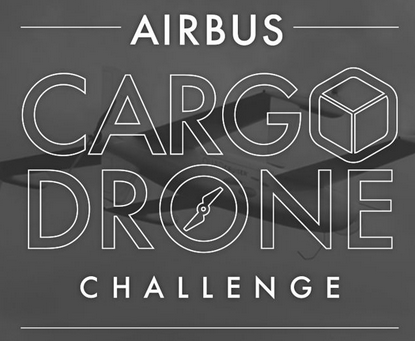
The challenge solicited designs that would 1) be designed for vertical takeoff and landing (VTOL), and efficient forward flight; a hybrid design created through the merging of design elements from both multi-rotors and fixed-wing aircraft b) the aircraft will operate in two flight modes, a hover mode for takeoff and landing, and a forward flight mode for efficient travel. At least one motor must be used for forward thrust in the fixed-wing flight mode c) the payload concept should be modular – i.e. suitable for cargo transport, mounting sensors or other applications d) the aircraft shall be designed to weigh less than 25 kg with a single, fixed and internal cargo bay that accepts a payload from 3 to 5 kg. d) The cargo in the cargo bay shall be easily accessible and interchangeable and impossible to jettison in flight. The cargo payload bay should be able to accommodate payloads smaller than that through a fixture that is to be designed. e) cruise speed of the aircraft in forward flight should be at least 80 km/h, and not exceed 194 km/h.
The five winners are:
- Alexey Medvedev from Omsk in Russia;
- Harvest Zhang from Mountain View in California, US;
- Dominik Felix Finger from Aachen in Germany;
- Finn Yonkers from North Kingstown, Rhode Island, US; and
- Frederic Le Sciellour from Pont De L’Arn in France.
They will share over US $100,000 in prize money.
This competition represents a new approach to the design commercial drones: one that integrates innovative ideas from a large community permits Airbus to experience new ways to develop more quickly. It also allows that future customer’s specific expectations and requirements are considered from the first design phases onwards. Speed is essential in the development of commercial drones to match this growing market and the Airbus teams were able to draw important lessons learned from this co- creation process.
“This is exactly what I hoped for when we kicked off our cooperation with Local Motors early this year. It is a totally different way of capturing innovation and ideas and represents our next generation,” said Airbus Group CEO Tom Enders. “I am truly impressed by the results and congratulate our winners. The ideas show an outstanding mix of passion, imagination, innovation and ingenuity. I am optimistic that some of these ideas could find their way into future industrial programmes at Airbus and represent a new, bold step forward in the era of unmanned flight.”
“The Airbus Cargo Drone Challenge proved that the Local Motors community of makers and innovators reaches far beyond the bounds of automotive design,” said Local Motors’ Co-founder and CEO Jay Rogers. “We received a record number of submissions and the quality was astounding. As a result of this challenge, Airbus has experienced directly how to do development more quickly and at a far lower cost.”
There were over 425 entries. The top selected projects will now be reviewed before potentially becoming part of an industrial program including the necessary services and applications.
The prize structure is divided into three categories each with an independent jury: the Airbus Main Prize, judged by an Airbus Jury; the Cargo Main Prize, judged by industry experts (also potential customers); and the Community Prize, judged by the Local Motors community members. Among the industry experts were representatives of 3D-Robotics (represented by CEO and Founder Chris Anderson), Matternet, Doctors without Borders, the International Federation of Red Cross and Red Crescent Societies, WeRobotics, Redline and Swiss Post.
“Most of the winning projects were designed as a high wing configuration. A high aspect ratio wing when combined with efficient fuselage design, a right structural weight and good aerodynamics with reduced drag, clearly helps to meet the required flight performance” said Jana Rosenmann, Head of UAS (Unmanned Aerial Systems) with Airbus Group. “Another very important aspect was the payload integration. It had to be realistic, robust and easy to manage. The 5 final winners have been selected for having fulfilled all the criteria of the three independent categories of Juries in the best possible way”, she added.
As a next step Airbus and Local Motors intend to build a demonstrator version of the winning design concept again through an open collaboration involving the community including potential customers and end-users. Simultaneously and as part still of the Cargo Drone Challenge some further co-creation work on commercial drone services and applications will be done with the community in a hack-a-thon, held at the beginning of September. A hack-a-thon is creative problem solving competition typically lasting between 24 and 48 hours.
You can learn more about the challenge, the requirements, and the winners here.
Frank Schroth is editor in chief of DroneLife, the authoritative source for news and analysis on the drone industry: it’s people, products, trends, and events.
Email Frank
TWITTER:@fschroth